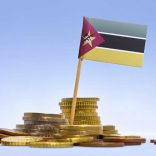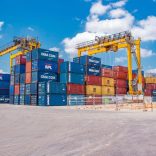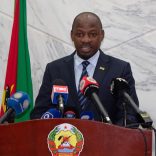Mozambique exchanges equivalent to 52.9 ME of 2021 internal debt for new issuance
PGR’s position on hidden debts “does not add anything new”, analysts say

Stock
Mozambican analysts have told Lusa news agency that Monday’s announcement by the Attorney General’s Office on the investigation into Mozambique’s hidden debts “does not add anything new”.
“It’s not a concrete breakthrough, it’s a strategy to save time,” economist Roberto Tibana said, considering it “an extremely incompetent attempt to show service, which does not exist”.
The PGR announced on Monday that it had submitted a complaint to the Administrative Court (TA) on Friday regarding the financial accountability of the public managers and companies that in 2013 and 2014 contracted debts with state guarantees issued in violation of the law.
Tibana told Lusa that it did not make sense to talk about a complaint, because the TA had already pronounced on the subject – for example, regarding the general accounts of the state – without proposing sanctions.
“They are trying to pass the buck, and this is already becoming a game of ‘ping-pong’ between the PGR and the TA,” Tibana said.
“The same information that they say the TA has to take action on, they [the PGR] also have to act on on the criminal side, at least to close the preparatory procedures and move forward with the process,” he said.
Fernando Lima, political commentator and chairman of the media group Mediacoop, called the announcement something “to entertain public opinion”, because in “perhaps the most important thing [the criminal offences], nothing happened”.
Lima said the prosecutor’s office issued a communiqué because it felt “pressured by public opinion” but without real progress, because this “must be determined by political decision at the highest level” of the Mozambican Liberation Front (Frelimo) government and “this decision does not yet exist”.
Roberto Tibana said that the hidden debts process was “a matter of regime” that Frelimo, in power since independence in 1975, would not solve before the 2019 general election because of the risks that it could engender for the campaign.
The analyst recalled that the current president, Filipe Nyusi, was a defence minister at the time the debts were incurred, during the term of Armando Guebuza, former president and head of Frelimo.
Going to elections without the issue clarified “is the lesser of the two evils,” Tibana said.
The economist also said that the PGR statement could be linked to Wednesday’s result in the mid-term elections in Nampula, in the north of the country, where Frelimo won by only a small margin over the main opposition party – the National Resistance Mozambican (Renamo) – and without getting more than 50 percent of the votes, which would lead to a second round.
At the same time, Filipe Nyusi was attending the African Union Summit where the main subject was the fight against the corruption.
There would also be “peer pressure for Mozambique to clean house” from African countries that have issued debt and whose bonds were being eroded by the Mozambican default.
Fernando Lima thinks that the PGR’s position could be “one more addition to the enormous frustration felt by the international community” since funds and programmes were frozen.
The ‘hidden debts’ of two billion US dollars were contracted by three public companies owned by the State Information and Security Service (SISE): Ematum, allegedly engaged in fishing, Proindicus (maritime security and surveillance), and MAM (naval maintenance).
An audit by international consultancy Kroll requested by the PGR and released in June describes the firms as a façade without credible management plans and implicates several public office holders in the process, though without naming them.
Kroll further complains that it was denied access to information relevant to determining where the money went on the grounds that it was sensitive material relating to state security.












Leave a Reply
Be the First to Comment!
You must be logged in to post a comment.
You must be logged in to post a comment.